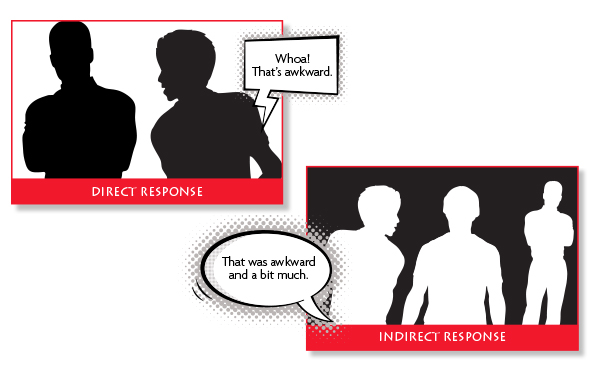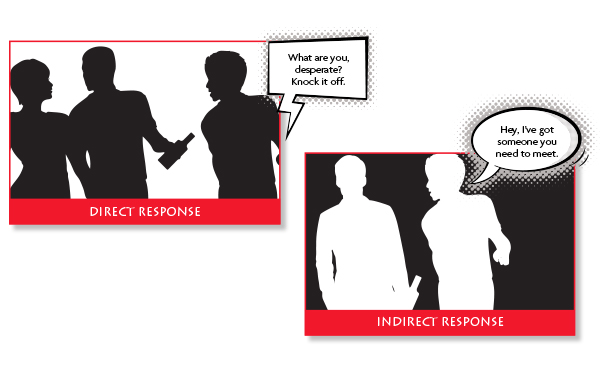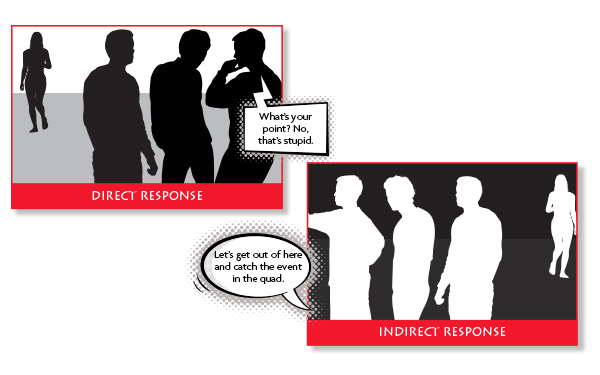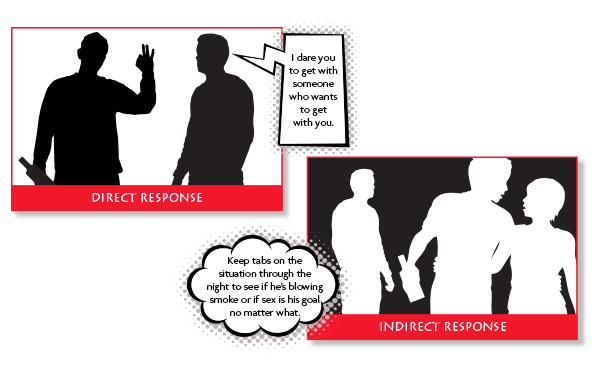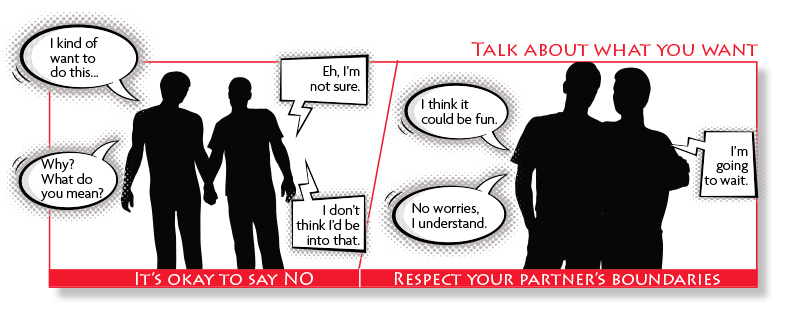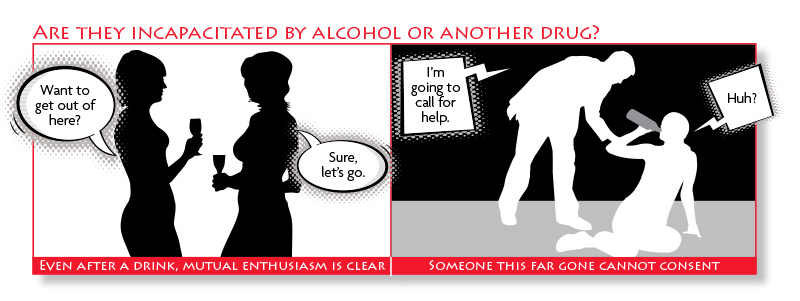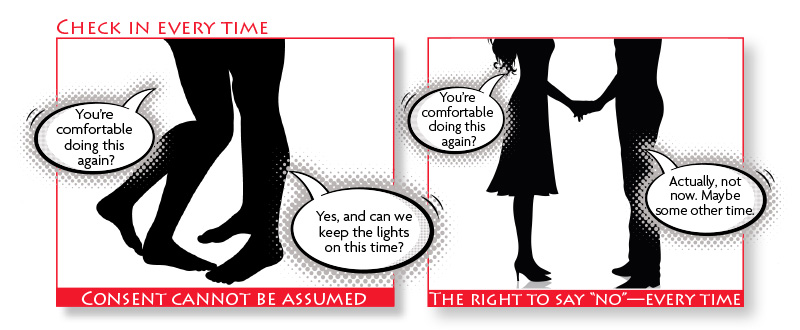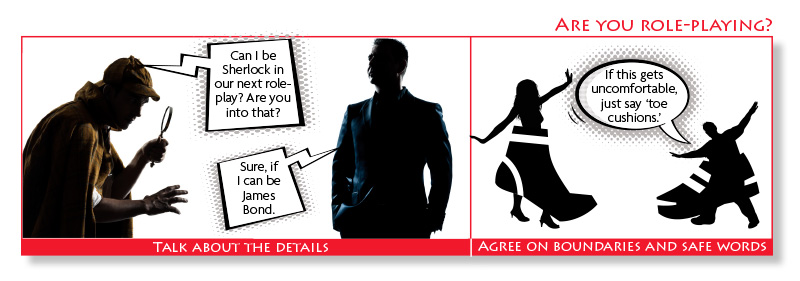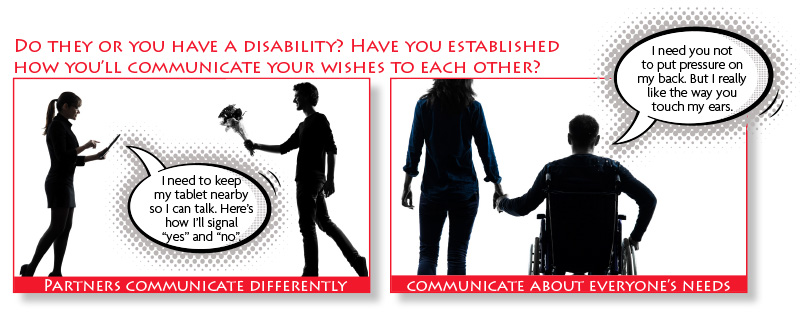Students’ stories: Surviving sexual assault and other trauma
Rate this article and enter to win
The process of surviving sexual assault, sexual abuse, and other traumatic experiences is unique to each individual and can be difficult to predict. “There’s no right way to heal after an assault,” says Carmen Hotvedt, assistant director for violence prevention at the University of Wisconsin in Madison.
If you’re a survivor of trauma, those around you may have expectations about how you should react and how long your recovery should take. It’s important to develop strategies that fit with your own priorities, circumstances, and needs. “Sexual assault victims have so much power taken from them in their victimization, unfortunately, sometimes even in their paths to healing,” says Hotvedt. Here, students—women and men, gay and straight—describe what helps them in the aftermath of sexual assault and abuse.
Student survivors share what helps
“I called a helpline”
“[I was sexually assaulted by my former mentor] after I started identifying as gay at 19. After being called to court so many times, I felt like I was reliving the assault each time. One prosecutor even suggested that because I came out as gay, I was asking for it. Throughout the process and for some time after, I made calls to the Trevor Project, a helpline for teens and young adults in crisis. It helped having someone to talk to who wasn’t going to judge me, and learning that it wasn’t my fault.
“One night when I couldn’t get past my assault, the woman on the phone suggested I hike out in nature, so that I wouldn’t have to be around too many people and could get some exercise in. She explained that if I didn’t get out and do something, I would keep reliving the event, which was… keeping me powerless. She also said that making decisions about where to go and what to do would help me relearn that I had power over my own body, actions, and life. Through time and the Trevor Project, I saw my confidence come back. The man got a fine and house arrest and had to register as a sex offender. It took me about two years before I was finally past it.”
—Undergraduate, Ohio
Support from a crisis center or school
“I contacted a rape and sexual assault crisis center”
Student’s story“I had an advocate available via phone any time I had to talk. She was the most understanding and caring lady in the world, and even came with me to court so I didn’t have to be alone. Women and men should know that they can speak up about sexual assault immediately and get in touch with sexual assault advocates. They might need help getting out of the situation and dealing with what already transpired. It needs to be talked about. Keeping it inside will eat you alive.”
—First-year undergraduate, Ridgewater College, Minnesota
What this is and how it works
Most cities have rape and sexual assault crisis centers that offer comprehensive services including counseling, STI testing, and legal advocacy and guidance. According to a 2006 study in Violence Against Women, survivors who worked with a victim advocate were more likely to have police reports taken and less likely to say they felt further victimized by the police. They received more medical services and reported less stress as a result of the legal and medical processes.
“I was supported by my college”
Student’s story“I was at a party with friends and we got separated. This guy pinned me against a wall. He said he was going to have sex with me and didn’t care what I wanted. I had never been so scared. One of my friends forcefully removed the guy and took me home. A friend reported it to my Resident Advisor, who reported it to the school. The school reached out to me and offered help, and places I could go to on campus, such as the women’s center. Every university or community should have places and support groups for people who have experienced sexual assault.” —Graduate student, University of Massachusetts Amherst
How schools can help
Survivors can be helped by a timely and adequate response from their school administration. This might include course-load reduction, counseling, investigating a sexual assault, and moving the alleged perpetrator into different classes or accommodations.
“Some students find that school becomes more difficult after sexual assault, and make reductions to their course load, resetting their expectations for themselves,” says Carmen Hotvedt, assistant director for violence prevention at the University of Wisconsin in Madison. “For others, their academics give them something to focus on.”
Supportive friends or religion
“I confided in supportive friends”
Student’s story“I’m very close to my older brother, and he was on call for me 24/7. That’s one major way that people can provide support: being available, even if only over the phone. A lot of the fallout from abuse is when you’re lying awake in the night and you don’t want to be a pain and call someone. So he was very helpful, just having someone say, ‘I believe you, tell me what’s happening, what do you need right now?’ People can be supportive in different ways, and survivors need all of that support.”
—Former undergraduate, University of Massachusetts Amherst
How it helps
It’s important to spend time with friends and others who validate your feelings, don’t judge you, and make you aware of your strengths. Supportive reactions from family, friends, and counselors help survivors recover, according to a 2006 study of 500-plus female college students in the Journal of Traumatic Stress. Negative reactions from friends and family are related to higher levels of post-traumatic stress.
“I drew on religious and spiritual support”
Student’s story“I was raised a Christian, and I had a great pastor. The things he taught me about forgiveness and the power of prayer were a tremendous blessing, something I was able to fall back on when I experienced the trauma of rape. I realized if you don’t forgive, it’s like that knife of pain they put into you. You’re just digging it around in your belly, saying, ‘This is what happened to me; look how they hurt me! Look how sharp this knife is!’ Forgiveness is the act of pulling that knife out and dropping it. It hurts, but it’s not because they deserve to be forgiven. It’s because you deserve to walk free of it. Go to God in prayer. By praying for good things for that person, you create new emotions within your own heart that will heal the pain they left you in. It doesn’t make it right, what they did to you. Nothing makes it right. But forgiveness is the only way to take that knife out.”
—Third-year undergraduate, Pacific Lutheran University, Washington
How religion can help
Among survivors, positive religious coping—drawing on religion as a source of strength, meaning, and healing, rather than blame or punishment—is linked to greater emotional well-being, including lower levels of depression, according to a 2010 study in the Journal of Interpersonal Violence.
Empowered by advocacy
“I got involved in sexual assault prevention advocacy”
Former student’s story“Speaking about one’s own experience, whether privately to friends, family, and counselors, or publicly to groups at Take Back the Night marches, when the survivor feels ready, can be very therapeutic. Going public about my assault has made a huge difference. It’s been cathartic, turning a negative thing into action. You weren’t able to stop what happened to you, but you can help others. I’ve been down this road and can help explain it.”
—Dr. Laura Gray-Rosendale, author of College Girl: A Memoir (Excelsior Editions/SUNY, 2013), survivor of sexual assault, and professor of English at Northern Arizona University
Student advocacy organizations: Who they are and what they do
Many organizations that work to end sexual violence are staffed by sexual assault survivors. Student-oriented organizations such as Know Your IX, End Rape on Campus, and It’s On Us work to empower survivors and educate the public on the nature and impact of sexual assault.
They offer survivors:
- Support and understanding
- The opportunity to help others
- Education on, and insight into, sexual assault
- The opportunity to develop advocacy and related skills (e.g., in leadership, communication, and community or media outreach)
What about male and LGBTQ survivors?
Male survivors
- One in 33 men experiences an attempted or completed rape in his lifetime, and 1 in 6 has been raped or sexually abused by age 18, according to the Department of Justice (2000).
- Male survivors are likely to encounter the societal myths that men should be able to protect themselves and that male sexual arousal indicates willingness. These misconceptions can increase feelings of isolation and shame and may cause some to question their sexuality. This can contribute to self-destructive behaviors, such as substance abuse and social withdrawal.
LGBTQ survivors
- 44 percent of lesbian women and 26 percent of gay men experience rape, physical violence, and/or stalking by an intimate partner in their lifetime, according to the Centers for Disease Control and Prevention (CDC).
- Almost two out of three transgender respondents say they have been sexually assaulted, according to the National Transgender Discrimination Survey (2011).
- Gay and transgender survivors may feel that the assault occurred because of their sexual and/or gender identity (this is sometimes true). Concerns about being shamed, blamed, and discriminated against by police, medical workers, and/or the community are barriers to reporting sexual assault.
Signs that you may need additional support
Potentially unhealthy coping strategies can include:
- Avoidance and denial
- Social isolation
- Risky behaviors, e.g., substance misuse and unsafe sex
Avoidance and social withdrawal
Avoidance coping involves distancing yourself from trauma as a way to avoid feeling overwhelmed. After a sexual assault, some decide to stay silent for reasons related to fear and perceived safety, blame and shame, or a desire to move on quickly. Sometimes, denial can help survivors maintain other aspects of their lives. However, avoidance may bring increased stress later.“Pretending that it hasn’t happened or ignoring it can be one of the worst things a survivor can do,” says Dr. Gray-Rosendale, author of College Girl: A Memoir. “This could not only result in the perpetrator going free, but also time and attention is needed to process and heal from what has happened.”
Some survivors withdraw socially. This is understandable, but may deny them the support of friends, family, and others who can potentially help.
Student’s story
“I felt responsible, so I didn’t want to share. I thought everyone would judge me and I would be alone, so I kind of made myself alone for a bit.” (College withheld)
Risky sexual activity and substance use
Risky behaviors include:- Earlier initiation of sexual activity
- A greater number of sexual partners
- Not using a condom
- Unwanted pregnancies
- Alcohol and substance abuse
“I talk with a counselor”
“I wasn’t doing well. My roommate, who is a social work major, pushed me to go to the campus counseling service, to make sure I was making decisions that were best for me. They talked me through what happened and my next steps. The same psychologist was by my side the whole time, making sure I was OK. They had me get a physical and do STI tests, but their main goal was to get me talking and for me to regain my body-to-mind connection, which tends to get distorted when you get traumatized.
“The most comforting thing about them was that they didn’t pressure me to talk or do anything that didn’t feel comfortable. The most important advice they gave me was to realize what happened and to work on getting better. Cliché, I know. But when something like sexual assault happens, you can’t just block it out. By ignoring it, you prolong the healing process. I still check in with them once a week to tell them how I’m progressing and the successes and struggles of the week.”
—Undergraduate, Temple University, Pennsylvania
“I got justice through the legal system”
“The other guys on the team labeled me gay, homo, fag…Each guy held me down and took his turn forcing me to do things I did not want to do. What’s important is seeking closure within yourself. The only reason I can wake from the nightmare is because I took it upon myself to [file charges against] every single one of them. I made sure that they either spent time in jail or were charged a huge chunk of money. Although someone might not understand what you’re going through, you need to tell someone. You need to report what happened, who, when, where, everything, to the best of your abilities.”
—Second-year undergraduate, University of New Brunswick, Fredericton
“I work on self-care and creativity”
“When bad things happen to me, I tend to hold back or hide my emotions. Sometimes, having an outlet can let you express the feelings you don’t necessarily want to feel. Theater and singing require you to portray emotion and live in the moment. They let me express my feelings without exposing myself too much, and this helped me recuperate. Whether your outlet is exercise, theater, or crafts, it lets your mind give out steam, even if you aren’t ready to face those emotions.”
—Undergraduate, Temple University, Pennsylvania
Deciding whether to report and a survivor's story
Seeking justice through the legal system does not erase an assault or its effects, yet for some survivors the process is important to their recovery. Reporting an attack may help protect others. Reporting an assault can have downsides. A victim advocate at a sexual assault crisis center or helpline can talk you through the pros and cons. Before disclosing an assault to any professional, on- or off-campus, ask them about confidentiality.
Survivor's Story
Former student’s story
“My parents helped me talk to an attorney, and I filed a civil lawsuit. I have not received any financial settlement, but what mattered was that my voice was heard. I felt enormously empowered, like I had reclaimed my inner strength. I no longer felt like an empty shell with my insides scooped out. It helped me to stop seeing myself as a victim. It also helped me publicize a terrible wrong that had been committed against me. By visibly pointing at my perpetrator and the people who protected him, I forced them out of the shadows and into the glare of the legal system and public opinion. I don’t think I could have recovered without taking action. Had I listened to my fear, I would always see myself as someone who was trampled on and could not get back up because she was too broken.”
—Former undergraduate, University of California in Irvine
How counselors can help
- Sort through your emotions in a supportive environment
- Make decisions about reporting, legal options, and recovery
- Develop healthy coping strategies
- Minimize self-blame, guilt, and depression
- Continue your college education
Self-care strategies
Self-care and creativity can involve:
- Healthful eating
- A sleep schedule that’s as normal and regular as possible
- Avoiding stimulants and depressants, e.g., caffeine, sugar, alcohol, and other drugs
- Mindfulness meditation
- Avoiding stressors to the extent possible
- Relaxing activities, e.g., reading, journaling, breathing exercises, yoga, meditation, and music
- Creative activities, e.g., music, writing, dance, and art
- Physical activity, which can reduce stress and help you feel more in control of your body
Get help or find out more
Find help on or near your campus
Not Alone
https://www.notalone.gov
National Sexual Assault Hotline
Rape, Abuse & Incest National Network (RAINN)
800-656-HOPE (4673)
Live online 24/7 support
Rape, Abuse & Incest National Network (RAINN)
https://ohl.rainn.org/online/
Crisis intervention 24/7 for LGBTQ youth
The Trevor Project
Helpline: 1-866-488-7386
TrevorText: 202-304-1200 (free)
https://www.thetrevorproject.org/pages/programs-services
Survivors’ rights and legal information
End Rape on Campus
https://endrapeoncampus.org/
Survivors’ online community
After Silence
https://www.aftersilence.org
Support for survivors of military sexual assault
Department of Defense
Helpline: 877-995-5247
https://www.safehelpline.org
Support around teen dating abuse
Love Is Respect
Helpline: 1-866-331-9474
Text: “loveis” to 22522
www.loveisrespect.org
Guide for male survivors of childhood sexual abuse
Colorado State University
https://www.wgac.colostate.edu/Data/Sites/1/guide-for-male-survivors-of-childhood-sexual-abuse.pdf
[survey_plugin]




